Louis Vuitton realises unbuilt Charlotte Perriand beach house in Miami
Design Miami 2013: a previously unrealised beach house designed by modernist architect Charlotte Perriand in 1934 has been constructed and furnished by French fashion house Louis Vuitton to coincide with this year's Design Miami fair (+ slideshow).
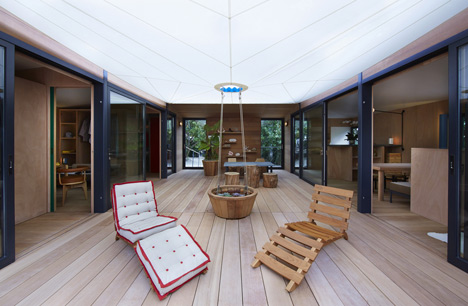
Charlotte Perriand's La Maison au Bord de l'Eau, or the house beside the water, has been built by Louis Vuitton using sketches and drawings almost eighty years after it was first conceived.
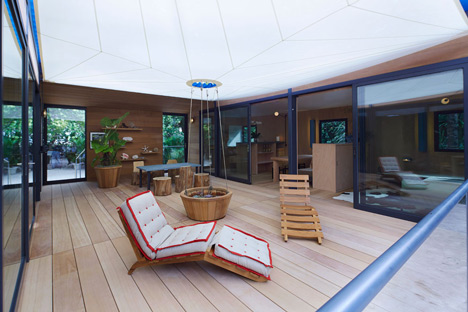
The project was initially conceived for a competition to design cheap holiday lodging, held by French architecture magazine L'Architecture d'Aujourd'hui.
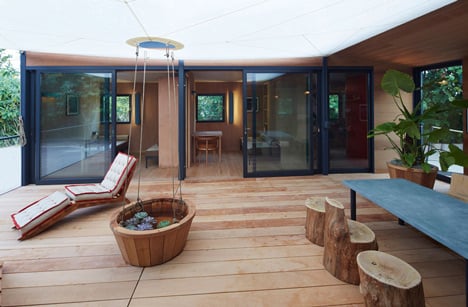
Perriand's design won second prize and was later reworked for wealthy vacationers, but the original scheme was never built.
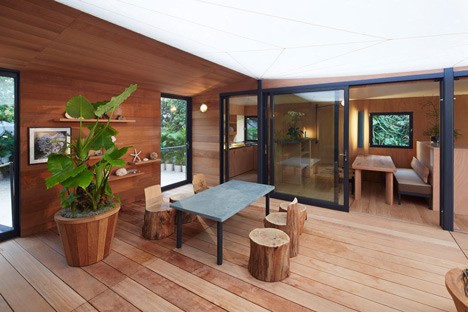
Now constructed in the beach-side garden at The Raleigh Hotel on Miami's South Beach, the small house is raised on wooden cuboids above the sand and accessed by a ramp at the back.
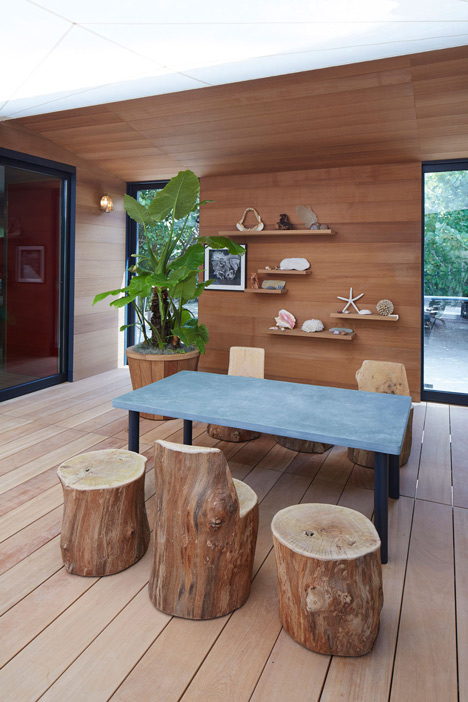
Two wings fronted by sliding glass doors are connected by a semi-enclosed corridor at the rear, creating a U-shaped plan.
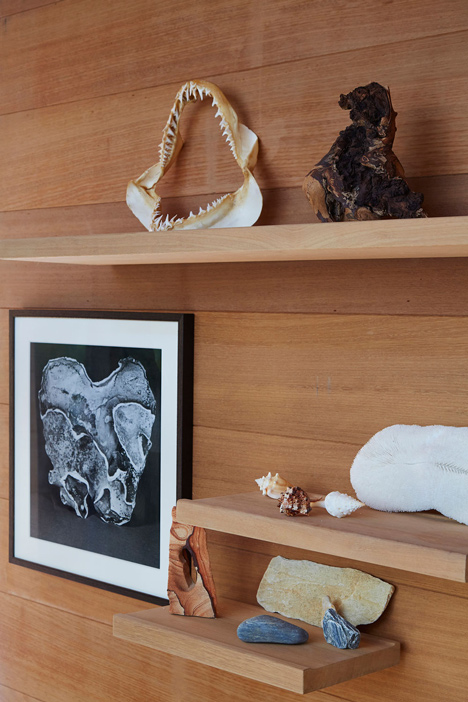
Bedrooms containing beds designed by Perriand are located on one side, along with the bathroom. The kitchen, dining and living areas are housed in the opposite wing.
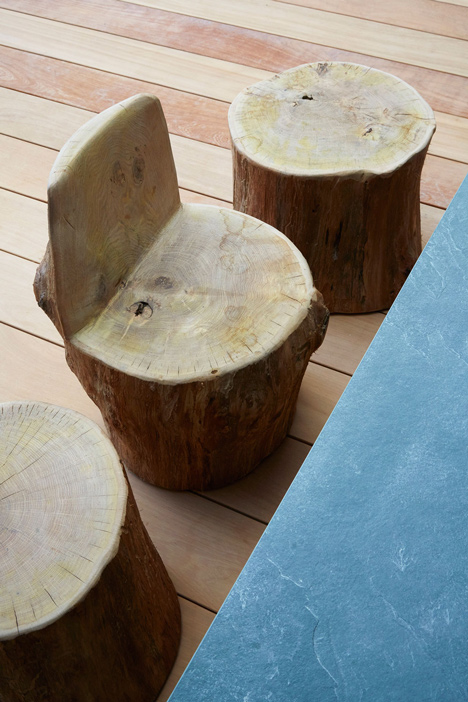
Wood clads the walls and floor, and is used for the majority of the furniture.
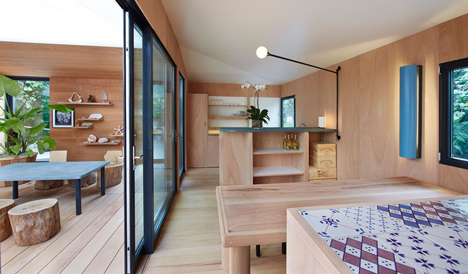
A central deck is covered with a fabric canopy, which drains via a hole in the centre positioned above a plant pot.
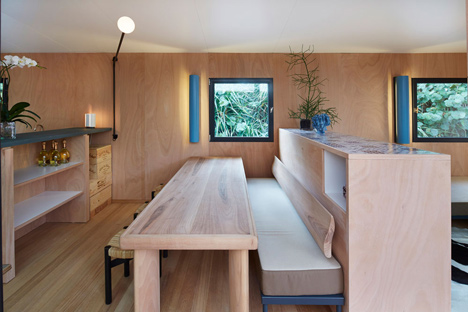
Accents of blue used for rounded lighting covers and counter tops match the corrugated roof.
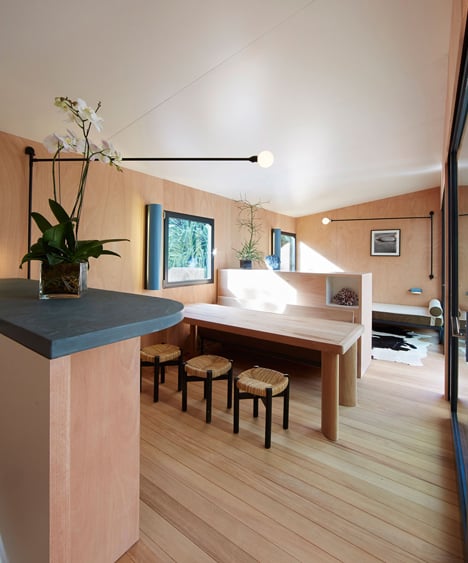
The project follows Louis Vuitton's Icônes Spring Summer 2014 fashion collection that took its influences from Perriand.
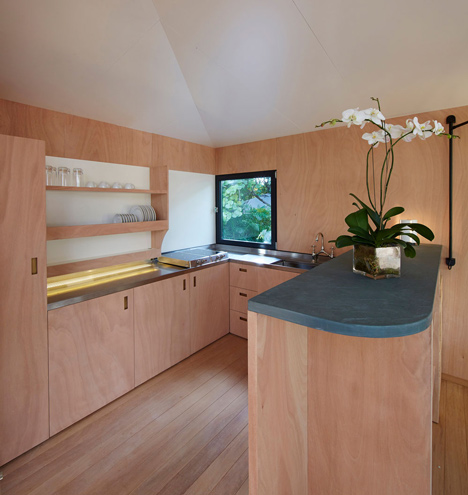
Work by the modernist designer is currently on display as part of an exhibition about how women shaped twentieth-century design, on show at the Museum of Modern Art (MoMA) in New York.
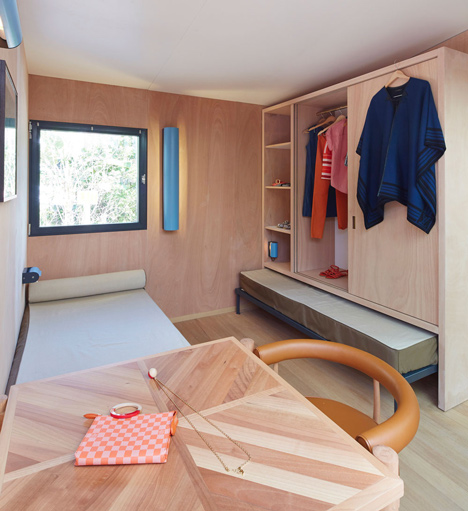
At Design Miami last year, Louis Vuitton showed a collection of leather portable objects including pieces by designers Fernando and Humberto Campana.
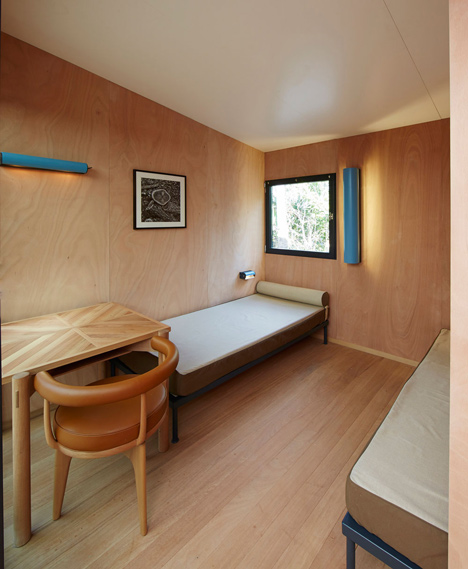
Here's some more information from Louis Vuitton:
La Maison au Bord de l'Eau, 1934
Design Miami satellite exhibition
Charlotte Perriand
Architect, designer, planner and photographer Charlotte Perriand remains an influential figure in the modern movement of the twentieth century.
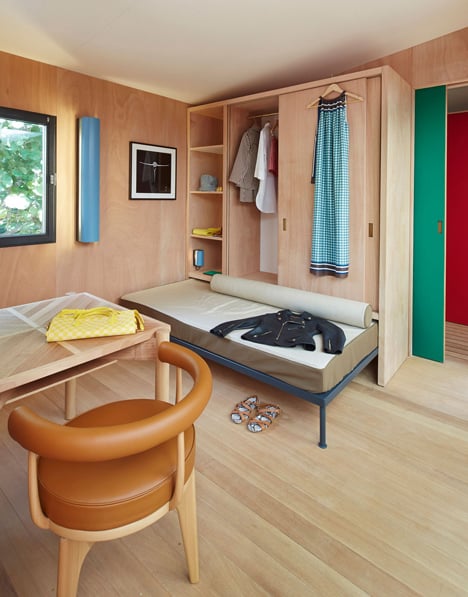
With links to the avant-garde in France, Germany, Russia, Japan and Brazil, her work spans seven decades of the last century.
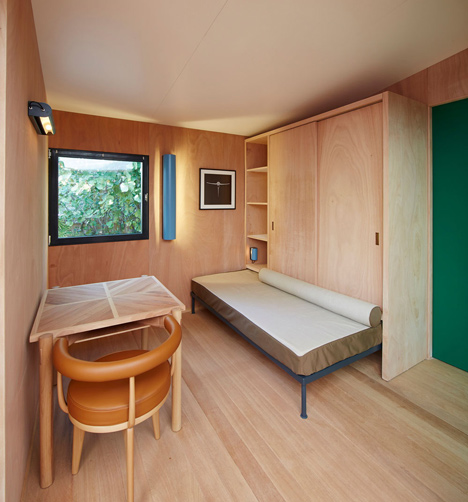
She left her mark on the 1920s, 30s, 40s, 50s and 60s, always working at the very top of her profession and at the cutting edge of the new. She was the first woman to work as an architect, designer and planner, opening up all these opportunities to the many women who followed her.
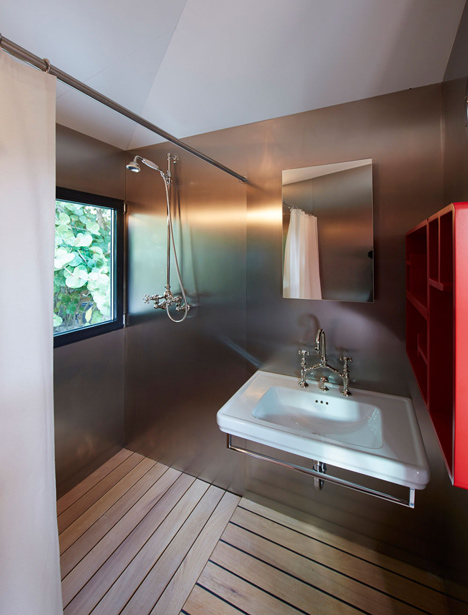
She played a major role in the story of design, not only in France, but also in Japan by giving direction to that country's industrial design output before the outbreak of war in the Pacific.
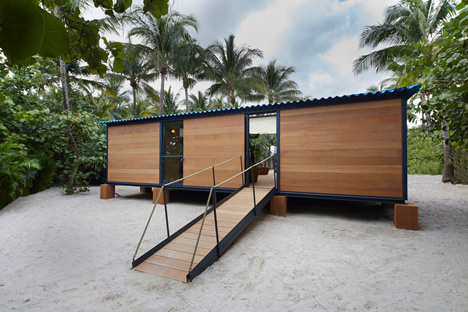
As a pioneer of interior architecture alongside Le Corbusier, and trailblazer for the modern movement in furniture, she created many design masterpieces now regarded as icons.
As a close friend of, and collaborator with, painter Fernand Léger, her work is marked by the concept she called a "synthesis of the arts" (synthèse des arts) and the determination to share progress with everyone through her chosen field of creativity: the home.
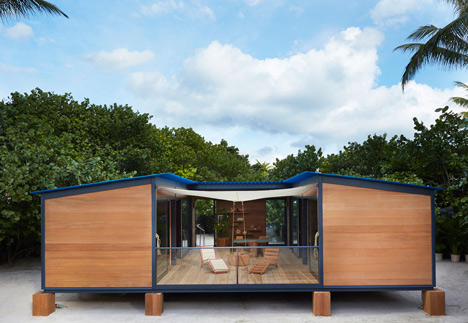
A great traveller throughout her life, her thinking and work were enhanced and expanded by her travels throughout Europe, Asia, India, the Pacific and Latin America.
La Maison au Bord de l'Eau
The House first designed a clothes collection, an ephemeral reflection of Perriand's desires, and is now producing La Maison au Bord de l'Eau for the 2013 Miami art week. This never-before-released work by the architect will be on display in South Beach December 3-8, 2013. This legendary, yet never executed, project is now a reality.
La Maison au Bord de l'Eau, first conceived in 1934 for a design contest held by L'Architecture d'Aujourd'hui magazine, was meant to introduce an economical form of holiday lodging for the mass market. This project won second prize, but was never built.
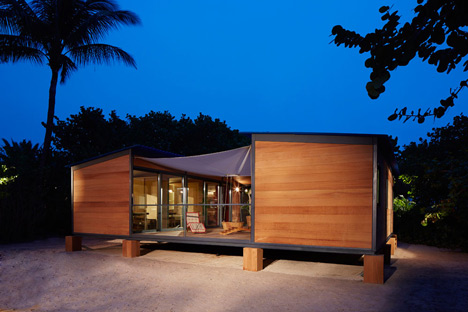
Charlotte Perriand later reworked the idea into several variations for wealthier vacationers. The fact that the project was never executed explains the lack of detailed drawings and the great variety of versions found in sketches.
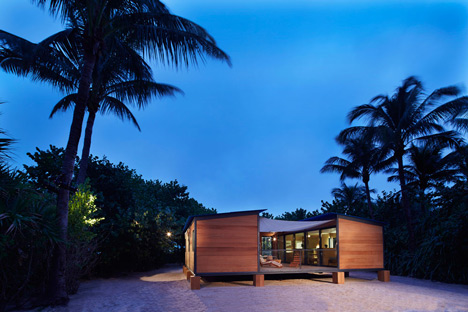
Now, eight decades later, Charlotte Perriand's studies prove quite contemporary in light of the advancements in wooden architecture. Though a certain degree of adaptation was necessary to translate the original drawings and notes into a tangible structure, the spirit of the designer was respected to the fullest.